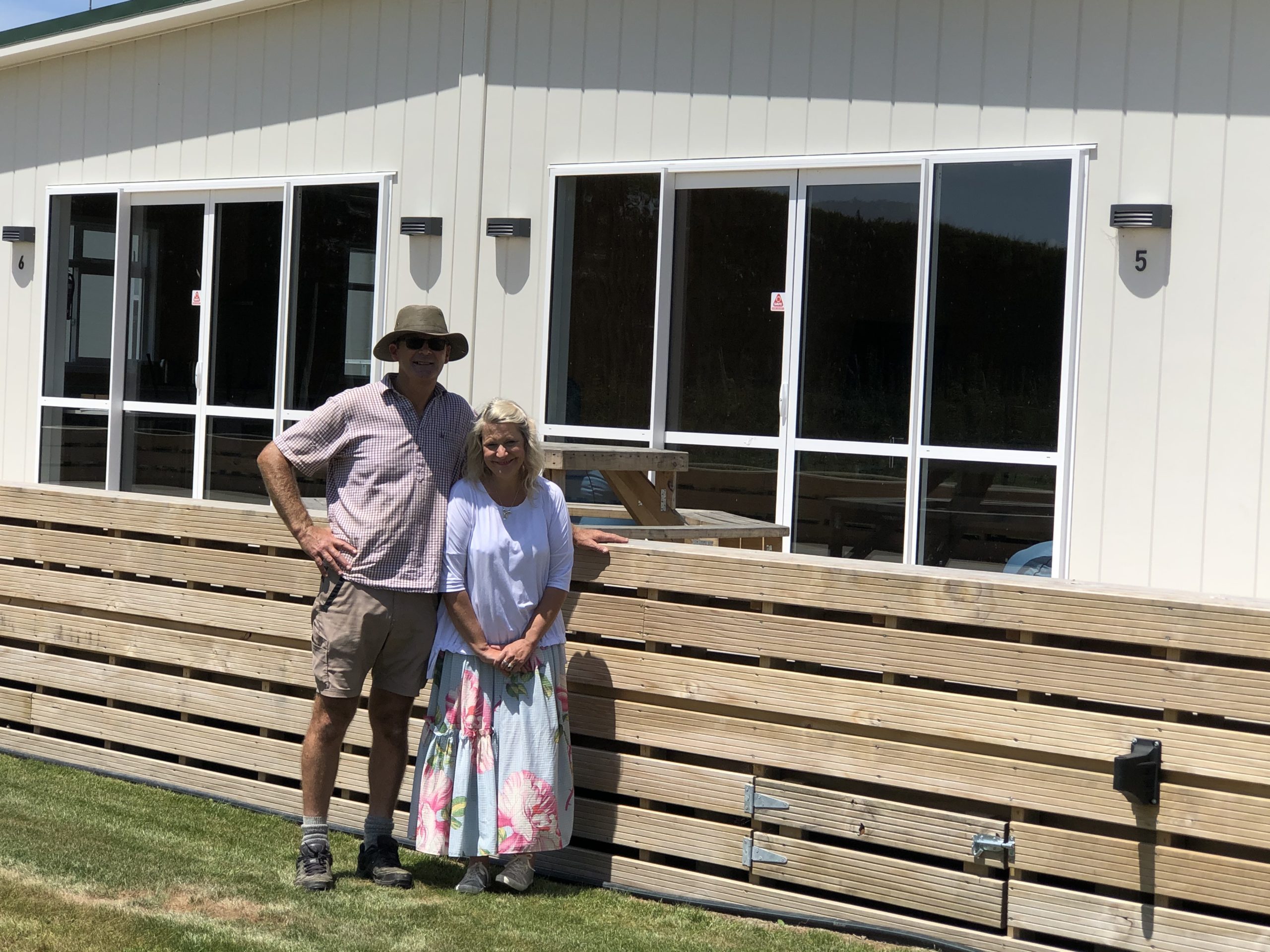Kiwifruit Growers Go Above and Beyond To Accommodate Their Staff
By Casey Vassallo

John and Wendy Evans live and breathe their family-operated business growing kiwifruit, apples and pears in Twyford, north-west of Hastings.
Located on the Heretauga Plains, the pair look after 80 hectares of land across their two respective family properties within five kilometres of each other.
“Being on the land is a bit like bringing up a family – it’s a 24/7 occupation,” John Evans says.
John oversees the operations, and Wendy manages its compliance and administration. Managing the growing system on-site, they have a controlled atmosphere cool storage and packhouse, and their fruit is stocked in both New Zealand supermarkets and internationally.
“It means we require a lot of good people and that’s always a challenge,” John explains. “We need people at differing levels, whether it’s management or people on the ground. For people that want to work there are opportunities.”
In the winter months, John and Wendy need approximately 60 people, and in the height of harvest, they require around 110.
Currently, they only have around two-thirds of the labour they need, in part because quarantine restrictions are limiting the number of international workers able to travel to New Zealand for work.
“Our biggest stress and expenditure are labour,” Wendy Evans says. “We’re already talking about leaving a certain variety of apples on the tree and picking the ones that are paying more because we won’t be able to get them off.”
It was around nine years ago they got involved in the Recognised Seasonal Employer (RSE) scheme to help meet their labour demands. It facilitates people from the Pacific Islands to work in New Zealand and, in return, get paid more than they would at home.
“They’re doing it themselves, giving their kids an education and building homes. But it’s helping us at the same time,” Wendy says.
While they have a strong team made up of Kiwis and people from overseas (either permeant residents or those on work visas), RSEs are also fundamental to the business.
“They’re a very important part of our ability to do the jobs we need to do,” John says. “We have a strong bond with them, and the respect goes both ways. It’s added a neat set of values to our operation to have these guys.”
In recent years, John and Wendy recognised the importance of accommodation for their workers after renting facilities in Hastings. It highlighted the stability and security they’d be able to provide if they were to set up housing closer to the orchard.
Taking a long-term view to labour and their staff’s wellbeing, they decided to build their own village.
Completed in the Spring of 2020, eight buildings were prefabricated in Palmerston North by Presidential Homes. Consented to house 84 RSE workers in total, each includes a lounge, kitchen, laundry, amenities and deck. They’re well-insulated, include ventilation and heating, and are equipped with WIFI so they can maintain regular contact with home.
Much like boarding, there’s a roster system for chores, house leaders to maintain responsibility, and a village leader to help provide pastoral care.
Off the back of COVID-19 and the subsequent lockdowns, they set up a food delivery system for the village, so they didn’t need to travel into town for groceries. Today, it’s become a mainstay for the staff as it positively influences their diet.
“They’re working hard outside, so they need their protein,” Wendy says. “I think having healthier meal options has been better for them and better for us by having healthier, more able people.”
Alongside a volleyball and tennis court, pool tables and regular trips to the beach, they’ve introduced weekly yoga classes. For those who are picking all day, it’s a way of aiding aches and pains and has the potential to prevent physical injuries.
Government-funded programme Vakameasina also assists in the education and development of horticultural workers. They come in to teach goal setting, the value of saving, business skills, and even how to build a septic tank or maintain a solar panel system.
“To have people that care about what they’re doing, who come to work each day motivated, is really important, so we’re trying to do our utmost to look after them in every way we can,” John says of all his staff.
“Just a few days ago, a representative from the village came and saw Wendy and I and gave us a little bunch of flowers and a card to say how very thankful and appreciative they all are of what we have done for them.”
For John and Wendy, if you treat your staff like family and invest in them, you get it back.
“Most people [in the industry] do their utmost to try and look after people,” he says. “Because we realise without good people and good ethics, we haven’t got an industry.”
“I think there’s a growing awareness for the need to have purpose-built facilities [for international workers] and a huge proportion of the industry are walking the talk to try and provide the right environment.”
